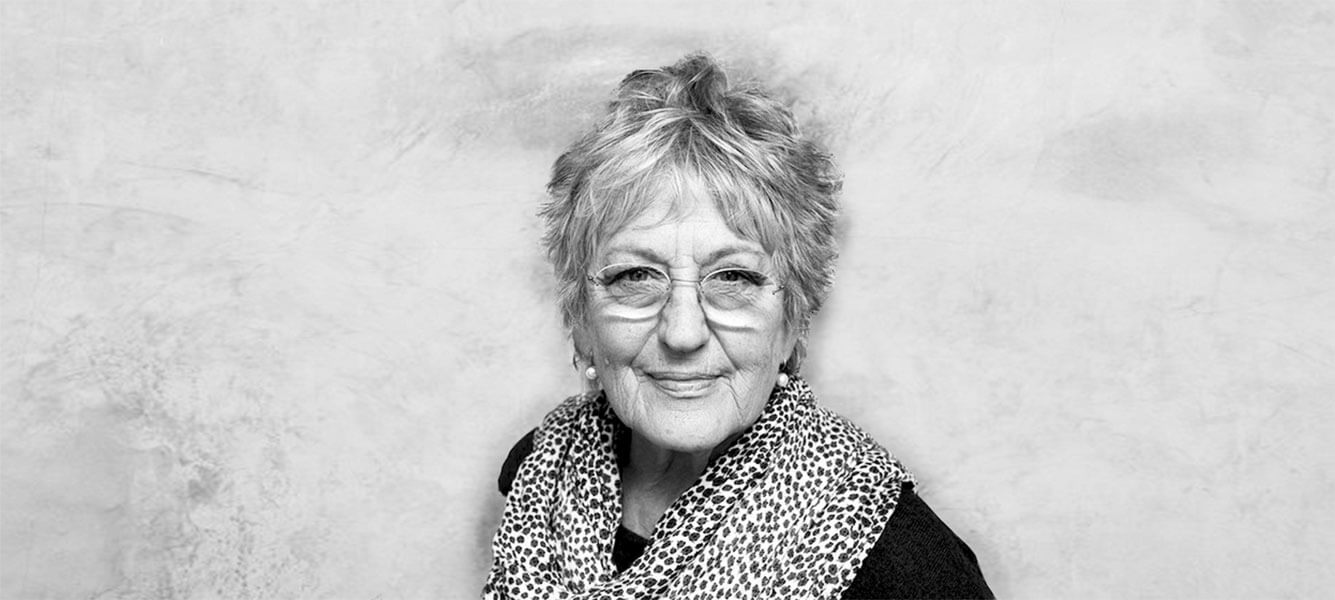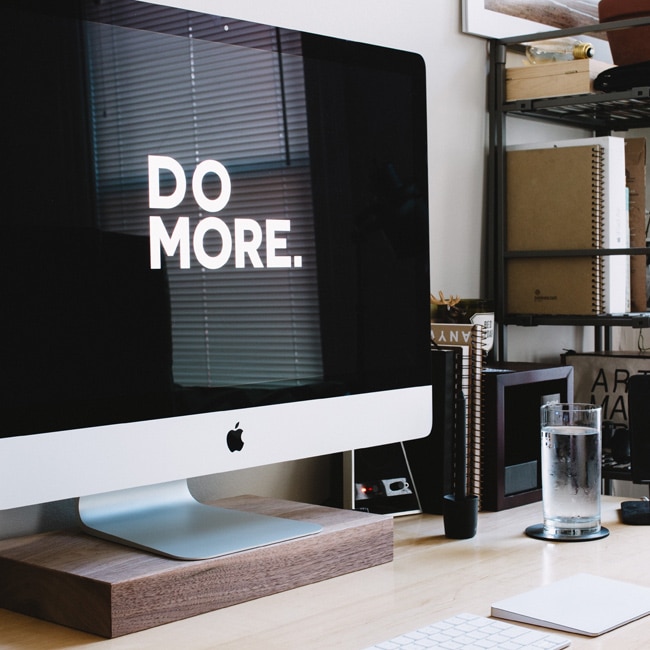Workplace ethics frameworks

A placard used to hang in the office of Milton Hershey, founder of the revolutionary chocolate company carrying a simple motto: “Business is a matter of human service”.
Hershey shaped his organisation around a progressive, generous employment model. In a time when corporate leaders were seen as villains and Theodore Roosevelt won the White House election on the promise of breaking up monopolies and regulating business more firmly, Hershey’s was seen by many as a model of responsible, prosocial business.
At the same time, Cadbury in the UK were making similar moves. Each company built a fully-serviced town for their employees, offered children an education, taking responsibility for supply chains, and gave the public tours of the facilities.
In Connect: How Companies Succeed by Engaging Radically with Society, John Browne suggests the companies “identified the potency of a corporate vision delivered through employees” – a message which is “as true today as it was in 1900”. Who said chocolate wasn’t good for us?
Today, we’d recognise elements of their activity – firm social purpose and activity driven by value rather than profit – as elements of an ethics framework, a central, defining expression of what a company believes in and seeks to uphold.
Ethics frameworks consist of three things: a purpose statement, values and principles.
They aren’t documents to be filed away or popped in a corner of the company website, never to be read. Writing a document about who we are and what we stand for means nothing unless those statements are lived and breathed in the company operation.
Like the confectioners of the early 20th century, the very best companies bring cohesion to their business decisions by showing staff the meaning of their values, purpose and principles. They work with them to show how these core ideals guide everyday business decision making.
Purpose statements can be long or short. They usually don’t focus on products or services but how, as Hershey recognised, your company is satisfying a community need.
Values and principles enable employees to distinguish between good and bad decisions. They help to frame business activity to ensure it stays true to its purpose and contract with society.
Together these form your ethics framework: the bedrock or ‘DNA’ of your organisation. A good framework will be:
- Practical – able to be applied in practice and with consistency.
- Authentic – it will ‘ring true’.
- Stable – will not change much (in its essence) over the long term.
- Understandable – by all of those required to apply it in practice.
Having an ethics framework isn’t designed to maximise profits. It’s designed to protect and improve the relationship between business and society – but it does often benefit the business as a commercial enterprise as well. By motivating employees and demonstrating the value and purpose of the business to them, they serve as ambassadors for your organisation.
What’s more, trusted organisations are more likely to survive the instances when they fall foul of public opinion. In 1909, Cadbury – until then widely respected – were accused of being involved in slave labour in Portugal. Despite the public outcry, Cadbury were able to survive the incident and restore their reputation because of the goodwill they’d earned through authentically living their ethics framework.
Although purpose statements, corporate values and organisational principles aren’t a guarantee of perfect ethical conduct, they are a crucial ingredient in building a culture in which bad behaviour is discouraged and dis-incentivised – and a flag of goodwill to stakeholders that your organisation is looking to serve humanity and not just turn a quick buck.
Ethics in your inbox.
Get the latest inspiration, intelligence, events & more.
By signing up you agree to our privacy policy
You might be interested in…
Opinion + Analysis
Business + Leadership, Relationships, Science + Technology
Are we ready for the world to come?
Opinion + Analysis
Business + Leadership
Risky business: lockout laws, sharks, and media bias
Opinion + Analysis
Business + Leadership
The great resignation: Why quitting isn’t a dirty word
Opinion + Analysis
Business + Leadership
Is debt learnt behaviour?
BY The Ethics Centre
The Ethics Centre is a not-for-profit organisation developing innovative programs, services and experiences, designed to bring ethics to the centre of professional and personal life.
Corporate tax avoidance: you pay, why won’t they?

Corporate tax avoidance: you pay, why won’t they?
Opinion + AnalysisBusiness + Leadership
BY Philippa Foster Back The Ethics Centre 25 OCT 2016
What do Apple and Virgin Australia have in common with Donald Trump? Spoiler: it’s not their charismatic leadership.
All three have – alongside a huge range of other companies and individuals – been accused of paying less in taxes than they should have. Whether or not this “makes them smart” or breaks the law, many people feel the practice shows businesses failing to meet their obligations to broader society.
Whether this is true or not depends on an important, subtle distinction between ‘tax planning’ and ‘tax avoidance’.
Responsible companies will seek to minimise their liability through good planning – making the most of the tools and mechanisms government provides: allowances, deductions, rebates and so on.
This is different from tax avoidance. Although legal, when financial instruments are exploited to provide tax advantages they weren’t designed to create, companies can obey the letter of the law while simultaneously undermining its spirit.
The behaviour can also be seen as aggressive – for instance, in the use of overseas tax havens.
Unlike tax evasion, avoiding tax and bending the rules of the tax system is not illegal. However, that doesn’t mean it’s entirely ethical.
Tax as a social responsibility
At a time when government spending cuts are having a real impact on the everyday lives of people, how can multinational corporations justify avoiding paying their fair share of taxes?
A 2015 survey by the Institute of Business Ethics and Ipsos MORI found the British public think tax avoidance is the most important ethics issue for business to address. Avoiding tax is avoiding a social obligation. In the UK, companies such as Apple, Starbucks and Amazon were vilified and boycotted for their tax policies. Tax avoidance can make a company vulnerable to accusations of greed and selfishness, damaging its reputation and destroying the public’s trust.
Paying a ‘fair’ amount of tax in the countries in which they operate is seen as the socially responsible thing for companies to do. Taxes provide the funds for public services such as healthcare, education and public investment in infrastructure – services that companies benefit from directly and indirectly.
Tax planning arrangements that go beyond the policy intent of the law and involve deliberate approaches to exploit the tax system are not ethical. It’s as simple as that.
For this reason, tax avoidance has been branded by some as an immoral and unethical practice that undermines the very integrity of the tax system.
However, company directors see their responsibility as being to maximise the value they deliver for their shareholders. This includes keeping tax costs to a legally permitted minimum. They might also point out the various other ways businesses contribute to the economy: employee and employer contributions, business rates, sales taxes and building sustainable businesses for employment.
Fairness
Remember, corporation tax is a tax on profits. If a company makes no profits, it can’t and shouldn’t be taxed on them. The issue is whether the profits are calculated correctly. There’s a difference between sales and profits – a company might have high sales but still not be turning a profit. But in these cases we would be wise to question how those profits were calculated.
Tax policies should be underpinned by the guiding ethical principles of accountability, transparency and consistency. Tax planning arrangements that go beyond the policy intent of the law and involve deliberate approaches to exploit the tax system are not ethical. It’s as simple as that.
Rather than hiding behind the business case for tax avoidance, businesses need to be transparent about their tax planning.
The public expects businesses to pay their ‘fair share’ of tax but what is a ‘fair’ amount is subjective. What businesses most want out of a tax system is certainty – they want to know what their tax bills will be so they can plan their strategy and investments accordingly.
So if the tax planning industry were able to obtain official clearance for any new tax avoidance scheme, it would be able to operate with confidence that its activities were considered fair according to the standards of government. This would provide it with the confidence and foresight it requires, as well as helping give citizens a clear understanding of what measures are permitted and why.
Striking a balance
Arguments for and against tax avoidance are missing the point. Politically, it might be too difficult to argue that companies pay more tax, but government and business should ensure that corporate tax contributions make a fair return to society.
Rather than hiding behind ‘the business case for tax avoidance’, businesses need to be transparent about their tax planning. Both companies and government need to pay more attention to openly communicating their position on taxation and their interpretation of tax law. This would both restore public trust in business and provide more certainty for those trying to manage their tax requirements.
Ethics in your inbox.
Get the latest inspiration, intelligence, events & more.
By signing up you agree to our privacy policy
You might be interested in…
Opinion + Analysis
Business + Leadership
The sponsorship dilemma: How to decide if the money is worth it
Opinion + Analysis
Business + Leadership, Society + Culture
Four causes of ethical failure, and how to correct them
Opinion + Analysis
Business + Leadership, Relationships, Society + Culture
Renewing the culture of cricket
Opinion + Analysis
Business + Leadership, Health + Wellbeing
Why ethical leadership needs to be practiced before a crisis
BY The Ethics Centre
The Ethics Centre is a not-for-profit organisation developing innovative programs, services and experiences, designed to bring ethics to the centre of professional and personal life.
Unconscious bias: we’re blind to our own prejudice

Unconscious bias: we’re blind to our own prejudice
Opinion + AnalysisBusiness + LeadershipRelationships
BY Jack Hume The Ethics Centre 28 SEP 2016
For the most part, we respect our colleagues and probably wouldn’t ever label them ‘sexist’ and certainly not ‘racist’. But gender and ethnic diversity in workplaces shows something is amiss.
Women fare worse than men across most measures of workforce equity. The Australian Government’s Gender Equality Agency report notes women who work full-time earn 16 percent less per week than men, constitute 14 percent of chair positions, 24 percent of directorships and 15 percent of CEO positions.
Women lose at both ends of the career lifecycle. Their average graduate salaries are 9 percent less than their male equivalents’ and their average superannuation balances 53 percent less.
Sociology, psychology and gender and cultural studies have all weighed in on the multiple causes of these inequalities, with much of the conversation converging around the role of ‘unconscious bias’ in decision-making.
Applicants with Indigenous, Chinese, Italian and Middle Eastern sounding names were seen to be systematically less likely to get callbacks than those with Anglo-Saxon names.
Studies in which people are asked to evaluate the capabilities and aptitudes of a job candidate show effects of implicit biases on job assessment. In a study mimicking hiring procedures for math related jobs, male candidates fared so much better than women that lower-performing males were chosen over better female candidates.
Similar effects have been seen with regard to race. In Australia, applicants with Indigenous, Chinese, Italian and Middle Eastern sounding names were less likely to get callbacks than those with Anglo-Saxon sounding names.
When biases become socially reinforced, individuals can come to see them as ‘reality’. Studies have shown women tend to believe they are worse at math than men and this belief has a negative impact on their performance.
In one study, a group of women were asked their gender prior to math tests and performed worse than the group who weren’t asked to disclose it. This phenomenon is called the ‘stereotype threat’ and it extends to racial beliefs. Two decades ago, a landmark study found that asking students of colour to identify their ethnicity prior to a test resulted in a substantially poorer grade.
This evidence suggests human resource departments might consider adopting hiring procedures that don’t require race, gender or even an applicant’s name be stated. Of course, at some point, the candidate will need a face-to-face interview, so this isn’t a perfect solution to bias- but it does reduce its influence.
Volunteering to learn more about diversity signifies a more general willingness to open organisational culture to people from different backgrounds.
Alongside systematic and procedural changes, we can help cultivate organisational willingness to combat inequality through diversity training. These training programs rose to prominence around a decade ago as a result of a wave of lawsuits against major US companies. However, as Frank Dobbin and Alexandra Kalev explained in an article for the Harvard Business Review, they were dazzlingly unsuccessful — resulting in negative outcomes for Asians and Black women, whose representation dropped an average of five and nine percent, respectively.
Dobbin and Kalev suggest the major reason these programs failed is probably because they were usually mandatory. This suggests they were motivated more by risk aversion — ‘discriminate and you’ll be fired’ — than a genuinely held belief diversity is valuable. It’s not surprising systematic change didn’t occur under such conditions.
At the same time, companies who used voluntary diversity programs saw increases in black, Asian and Hispanic representation – even as the average was decreasing nationwide. Volunteering is most likely motivated by a belief that diversity is genuinely valuable — factors that seem far more effective in influencing workplace diversity, perhaps because they are genuine.
Science is yet to tell us whether we can actually reduce biases let alone erase them altogether. All the same, we can begin to mend workplace inequalities by actively engaging peoples’ will to change.
Ethics in your inbox.
Get the latest inspiration, intelligence, events & more.
By signing up you agree to our privacy policy
You might be interested in…
Opinion + Analysis
Health + Wellbeing, Relationships
How to pick a good friend
Big thinker
Politics + Human Rights, Relationships
Big Thinker: Germaine Greer
Opinion + Analysis
Relationships, Science + Technology
Should you be afraid of apps like FaceApp?
Opinion + Analysis
Business + Leadership
Getting the job done is not nearly enough
BY Jack Hume
Jack studied Philosophy and Psychology at the University of Sydney, completing his Bachelor of Arts in 2017 with First Class Honours. He has supported The Ethics Centre's Advice & Education team in research capacities over the last two years, contributing to their work on cognitive bias in decision making, and ethics education in financial services. In 2018, he joined the Centre full-time as a Graduate Consultant. He brings insights from contemporary political philosophy, moral psychology and skills in qualitative research to consulting projects across a variety of sectors.
BY The Ethics Centre
The Ethics Centre is a not-for-profit organisation developing innovative programs, services and experiences, designed to bring ethics to the centre of professional and personal life.
5 dangerous ideas: Talking dirty politics, disruptive behaviour and death

5 dangerous ideas: Talking dirty politics, disruptive behaviour and death
Opinion + AnalysisBusiness + LeadershipScience + Technology
BY The Ethics Centre 1 SEP 2016
The Ethics Centre was the founding partner of the Festival of Dangerous Ideas back in 2009. We’re thrilled that the festival continues with a program full of world-leading thinkers.
Here are five ideas that were pondered, dissected and debated over the big weekend in 2016. We talked dirty politics, disruptive behaviour, disappearing countries and death.
-
Dirty politics
In 2016, the festival put dirty old politics in the spotlight. Australia’s federal parliament had just resumed session with a bunch of independent and minority party representatives, the United States was still trying to make sense of Donald Trump and across the globe nations were trying to unpack exactly what ‘extremism’ was and how to deal with it.
“If our goal is to seek a deeper understanding of the world, our lack of moral diversity is going to make it harder.”
American psychologist Jonathan Haidt’s TED talk explores the moral values underpinning liberals and conservatives. Instead of looking at politics as a battleground of ‘right vs wrong’, Haidt encourages us to see political differences as being based in different moral values.
-
Disruptive behaviour
You can’t make an omelette without breaking a few eggs, right? For the disruptors of the world, improvement comes at a price – we need to break eggs, challenge convention, and occasionally hurt people’s feelings.
On the other side of the Pacific, the #BlackLivesMatter movement was upsetting middle-class, white Americans in 2016 by calling attention to continued racial disparities in the US.
Check out philosopher George Yancy’s open letter, ‘Dear White America’ to learn about the intellectual basis for the movement. In the letter, Yancy makes a simple but confronting point to his white American fellows – if you’re white, no matter how well intentioned you are, you’re probably racist. He wrote:
“If you are white, and you are reading this letter, I ask that you don’t run to seek shelter from your own racism. Don’t hide from your responsibility. Rather, begin, right now, to practice being vulnerable. Being neither a ‘good’ white person nor a liberal white person will get you off the proverbial hook.”
Yancy’s essay prompted exactly the response he expected – anger. So much so the American Philosophical Association issued a letter of support. You can read Yancy’s thoughts on the backlash he copped here.
Australians reading or hearing about the Black Lives Matter movement might also want to read into the history of Aboriginal deaths in custody.
-
Disappearing conflicts
Conflict, politics and geography drive some nations and communities to the brink while others flourish. What are the unseen consequences of major global trends?
The Right to be Cold asks whether the world’s failure to address climate change is a human rights violation against Inuit peoples whose way of life is being eradicated along with the melting ice.
To get a sense of what’s going on for these remote communities, check out photographer Ciril Jazbec’s series documenting climate change and its impact on Greenlanders.
“It was April and the ice was starting to melt, which was highly unusual. Usually the ice would stay out until June.”
-
Dealing in death
If evolution hardwires in us the drive to survive, how is it humans are able to overcome their biological imperative and take their own lives? There’s still a stigma that suicide is a ‘selfish choice’, but evolutionary biologist Jesse Bering explores the science behind suicide.
“Human suicide is an adaptive behavioural strategy that becomes increasingly likely to occur whenever there is a perfect storm of social, ecological, developmental and biological variables factoring into the evolutionary equation.”
For the scientifically minded, Bering’s essay in Scientific American is a must-read. If you’ve never donned a white lab coat, you might be more inclined to listen to the Freakonomics podcast ‘The Suicide Paradox’.
-
Dangerous ideas
While every Festival of Dangerous Ideas has specific themes, the main goal has always been to create a safe space for open discussion of ideas some people would consider dangerous.
It’s a skill that seems to be in growing demand, so before you listen, read, think or tweet, check out what festival co-founder Simon Longstaff writes on why conversations matter.
Ethics in your inbox.
Get the latest inspiration, intelligence, events & more.
By signing up you agree to our privacy policy
You might be interested in…
Opinion + Analysis
Business + Leadership, Politics + Human Rights
Can philosophy help us when it comes to defining tax fairness?
Opinion + Analysis
Business + Leadership
How a Shadow Values Review can improve your organisation
Opinion + Analysis
Science + Technology, Society + Culture
AI is not the real enemy of artists
Opinion + Analysis
Business + Leadership
Pay up: income inequity breeds resentment
BY The Ethics Centre
The Ethics Centre is a not-for-profit organisation developing innovative programs, services and experiences, designed to bring ethics to the centre of professional and personal life.
‘Hear no evil’ – how typical corporate communication leaves out the ethics

‘Hear no evil’ – how typical corporate communication leaves out the ethics
Opinion + AnalysisBusiness + Leadership
BY Trent Moy The Ethics Centre 15 APR 2016
Evidence from the 2018 Royal Commission into Misconduct in the Banking, Superannuation and Financial Services Industry was not the first and won’t be the last revelations of unethical behaviour in business. In fact, it’s been a busy few years for anyone interested in business ethics.
We have seen the Panama Papers and Unaoil scandals play out, the muddied relationship between Clive Palmer and Queensland Nickel (who was in charge of the company, really?), managers falsely inflating earnings at Target and an admission of fraud by a senior manager at Seven Network.
Ethical issues involving accusations of dishonesty, bribery, corruption, fraud and theft are, sadly, never too far away from the news. Sometimes that ethical failure has an easily identifiable cause – someone who negligently steered a course into moral hazard or selfishly set out to do something they knew was wrong. It’s also easy to identify a solution: we deal with those people through education, punishment or both.
But what about those more commonplace ethical slip-ups – the ones that don’t fall into the #epicfail bucket or make headlines, at least not immediately? Where it’s not so easy to find a guilty person in need of punishment? It’s useful to think of these as instances of ethical drift – where an organisation unconsciously drifts away from its ethical True North.
How does ethical drift happen?
A big factor could simply be the way people communicate within an organisation. Ethical context, insight and commentary is easily lost in day-to-day business communications, and it can happen in a number of ways:
The ethical framework is nowhere to be seen
Most organisations have a mission statement about their purpose, values and principles, which is expected to provide the overall direction for the company. But this ethical framework is rarely localised or given the same status as other performance indicators. That makes it hard for people to stand back and assess if, for instance, a change management project is on track to reinforce the organisation’s values as well as meeting other objectives.
Emphasis on short time periods
Internal reporting is time-driven. The emphasis on monthly, quarterly or yearly figures makes it seem irrelevant to include commentary about longer term ethical symptoms or effects. As a result, the ethics of an activity are not assessed with the same regularity and urgency.
Managing up
Managers do manage up. As reports go up the line they narrow the focus of the reader and set the agenda for what might need to be understood. Such reports tend to leave out any information that might go against the usual approach or beliefs, be unclear or prompt questions. On one hand – fair enough. Who wants to get a management report and be confused? But the downside is that the reader might be being well managed toward a certain conclusion rather than being well informed.
The glut of communication
We are drowning in information, so wherever possible reporting is abbreviated and metricated. Qualitative assessments are expected to be backed by hard figures and compared against something – a benchmark, a previous period or a competitor’s results. Assessing whether an organisation is still heading in the right ethical direction isn’t something that lends itself to metrification. And if a report’s format doesn’t include a space for ethical insights, it sends a signal that it’s not important or welcome.
Misplaced emphasis on annual staff surveys
Whether an organisation is on course for its True North is often determined by an annual staff survey. Frequently, such surveys ask people to put a numerical score (say, one to 10) on how well their team lives the ethics of the organisation. This can act as a quick point-in-time morale check, but it hardly lets people question an organisation’s accepted norms. It takes an extra level of sophistication for an organisation to change its routine reporting to capture ethical insights and measures, and to put them on an equal footing with routine performance measures.
For organisations to function at their ethical best, they need to have proactive, fearless but humble debate. But it’s hard to foster debate in an environment where reporting tools are very narrowly defined and don’t link back to the organisation’s ethical framework.
Instead, organisations need a culture where questioning is not treated as a ‘gotcha’ opportunity. Where leaders welcome information that indicates all might not be simple and rosy. Where ambiguity creates interest rather than fear. And where numerically insignificant data or exceptions are not confused with ethical insignificance.
Ethics in your inbox.
Get the latest inspiration, intelligence, events & more.
By signing up you agree to our privacy policy
You might be interested in…
Opinion + Analysis
Business + Leadership
Following a year of scandals, what’s the future for boards?
Opinion + Analysis
Business + Leadership
360° reviews days are numbered
Reports
Business + Leadership
Trust, Legitimacy & the Ethical Foundations of the Market Economy
Opinion + Analysis
Business + Leadership, Politics + Human Rights, Relationships
It’s time to increase racial literacy within our organisations
BY Trent Moy
Trent works as a sessional academic and is a Senior Consultant with The Ethics Centre. Prior to specialising in organisational ethics, culture, and corporate responsibility, he spent more than 25 years in corporate roles with a particular focus on financial services. He has also worked across marketing, strategy and sustainability. He is a Fellow of the Institute of Community Directors which seeks to improve the governance of Australia’s not-for-profit organisations.
BY The Ethics Centre
The Ethics Centre is a not-for-profit organisation developing innovative programs, services and experiences, designed to bring ethics to the centre of professional and personal life.
Capitalism is global, but is it ethical?

Capitalism is global, but is it ethical?
Opinion + AnalysisBusiness + Leadership
BY Trevor Treharne The Ethics Centre 7 APR 2016
Does the dominant economic system of the Western world withstand moral scrutiny? Trevor Treharne asks leading moral philosophers and experts.
While economics are seldom discussed in directly ethical terms, it is through the spirit of moral inquiry that today’s capitalist societies were originally imagined.
Adam Smith, the 18th century thinker known as the father of modern economics and capitalism, was first and foremost a moral philosopher.
Smith’s famous metaphor of ‘the invisible hand’ attempted to describe the wider social benefits that result from individual actions. Capitalism was designed to be ethical, but is it?
The achievement of capitalism
Assuming society has certain obligations – the reduction of poverty, the improvement of health and the extension of human happiness – capitalism plays an important role.
“The best things about capitalism are its mind-boggling productivity and its exquisite sensitivity to what people want and need”, says John Bishop, a moral philosopher at Trent University in the UK and editor of the book Ethics and Capitalism.
Bishop argues that historically and globally, capitalism has caused the life expectancy of people to rise from about 28 years to over 70 years.
“Much of this has been through reducing infant and child mortality – a most ethical goal – and lifting hundreds of millions of people out of abject poverty.”
“Capitalism creates net new wealth on a scale the world has never before seen”, he says.
Harvard cognitive scientist Steven Pinker says that it’s hard to have an intelligent discussion about capitalism because too many people confuse “capitalism” with “unregulated capitalism with no social welfare”. Their criticisms have nothing to do with capitalism itself but about whether it’s a good idea for governments to regulate economic activity to provide social benefits. This is completely compatible with capitalism, as the capitalist economies of Scandinavia, Canada, and New Zealand prove.
“Putting aside that red herring, there are several advantages to capitalist economies, apart from generating wealth that makes rich and poor alike better off”, Pinker says.
“Countries that trade with each other are less likely to start wars with each other, because with effective markets it’s cheaper to buy things than to steal them.”
“Also, in a market economy, other people are more valuable to you alive than dead. All of this reduces some of the exploitative incentives of war and conquest”, Pinker adds.
The issues with capitalism
Bishop warns that capitalism has a tendency to distribute its benefits in an extremely unequal fashion.
“It also has the inability to value important things that do not have market value such as human dignity, caregiving, the climate, the environment, and people who have nothing to offer the market, such as children, the severely disabled, and the elderly”, he says.
Bishop says capitalism also fails to account for the needs of future generations.
“Given this, our ethical duty is to mitigate the harms and omissions of capitalism without serious disruption of its immense productivity and wealth creation.”
Simon Tormey, a political theorist at The University of Sydney, says the problems of capitalism depend on the governing system it operates within.
“What has tended historically to dictate which end of the [ethical] spectrum capitalism appears on is the ability of ordinary people to rein back capitalism’s excesses through the actions of the state on the one hand, and of social movements such as trade unions on the other”, he says.
“Countries with strong states and strong social movements are able to develop forms of capitalism that are quite ethical in this respect and Scandinavia would perhaps offer the most complete examples.”
“However, countries where there is authoritarian governance, where trade unions and other social movements are weak, are often characterised by a highly unethical and obnoxious form of capitalism that prays on individual weakness to generate profits for a small minority.”
Tormey adds that unfortunately much of the evidence of the past 40 years suggests a progressively slippery slope to domination by “the 1%” and thus to “unethical capitalism”.
Not perfect, but superior
Society is ordered by picking a preference from a series of competing systems, all of which flourish and flounder in varying degrees.
It is not sensible to overthrow a system such as capitalism on the mere basis of a few potential pitfalls.
But noting the issues can start a conversation about its reform or adaption.
“Is capitalism ethical? As compared to what?” asks moral philosopher Peter Singer.
“So far, none of the alternatives tried have done nearly as good a job as capitalism of keeping most of the population out of poverty and even providing them with a reasonable level of comfort.”
“Until we have evidence that there is another system that can do better, the sensible course seems to be to stick with capitalism and attempt to deal with its flaws rather than to abandon it”, Singer adds.
Ethics in your inbox.
Get the latest inspiration, intelligence, events & more.
By signing up you agree to our privacy policy
You might be interested in…
Opinion + Analysis
Business + Leadership
Why you should care about where you keep your money
Opinion + Analysis
Business + Leadership
Managing corporate culture
Opinion + Analysis
Business + Leadership
Roshni Hegerman on creativity and constructing an empowered culture
Opinion + Analysis
Business + Leadership, Politics + Human Rights
Should corporate Australia have a voice?
BY Trevor Treharne
Trevor Treharne is a news editor at Yahoo7 and is completing a Masters of Bioethics at the University of Sydney.
BY The Ethics Centre
The Ethics Centre is a not-for-profit organisation developing innovative programs, services and experiences, designed to bring ethics to the centre of professional and personal life.
Ethics Explainer: Dirty Hands

Ethics Explainer: Dirty Hands
ExplainerBusiness + LeadershipPolitics + Human Rights
BY The Ethics Centre 29 MAR 2016
The problem of dirty hands refers to situations where a person is asked to violate their deepest held ethical principles for the sake of some greater good.
The problem of dirty hands is usually seen only as an issue for political leaders. Ordinary people are typically not responsible for serious enough decisions to justify getting their hands ‘dirty’. Imagine a political leader who refuses to do what is necessary to advance the common good – what would we think of them?
Michael Walzer steps in
This was the question philosopher Michael Walzer asked when he discussed dirty hands, and another philosopher, Max Weber, had asked before him.
Walzer asks us to imagine a politician who is elected in a country that has been devastated by civil war, and who campaigned on policies of peace, reconciliation and an opposition to torture. Immediately after this politician is elected, he is asked to authorise the torture of a terrorist. The terrorist has hidden bombs throughout apartments in the city which will explode in the next 24 hours. Should the politician authorise the torture in the hope the information provided by the terrorist might save lives?
Finding common ground
This is a pretty common ethical dilemma, and different ethical theories will give different answers. Deontologists will mostly refuse, taking the ‘absolutist’ position that torture is an attack on human dignity and therefore always wrong. Utilitarians will probably see the torture as the action leading to the best outcomes and argue it is the right course of action.
What makes dirty hands different is it treats each of these arguments seriously. It accepts torture might always be wrong, but also that the stakes are so high it might also be the right thing to do. So, the political leader might have a duty to do the wrong thing – but what they are required to do is still wrong. As Walzer says, “The notion of dirty hands derives from an effort to refuse ‘absolutism’ without denying the reality of the moral dilemma”.
The paradox of dirty hands – that the right thing to do is also wrong – poses a challenge to political leaders. Are they willing to accept the possibility they might have to get their hands dirty and be held responsible for it? Walzer believes the moral politician is one who has dirty hands, acknowledges it, and is destroyed by it (because of feelings of guilt, punishment and so on): “it is by his dirty hands that we know him”.
Note that we’re not talking about corruption here where politicians get their hands dirty for their own selfish reasons, like fraudulent reelection or profit. What we’re talking about is when a politician might be obliged to violate their deepest personal values or the ethical creeds of their community in order to achieve some higher good, and how the politician should feel about having done so.
A remorseful politician?
Walzer believes politicians should feel wracked with guilt and seek forgiveness (and even demand punishment) in response to having dirtied their hands. Other thinkers disagree, notably Niccolo Machiavelli. He was also aware political leaders would sometimes have to do ‘what’s necessary’ for the public good. But even if those actions would be rejected by private ethics, he didn’t think decision makers should feel guilty about it.
Machiavelli felt indecision, hesitation, or squeamishness in the face of doing what’s necessary wasn’t a sign of a good or virtuous political leader – it was a sign they weren’t cut out for the job. Under this notion, the good political leader won’t just accept getting their hands dirty, they’ll do it whenever necessary without batting an eyelid.
Ethics in your inbox.
Get the latest inspiration, intelligence, events & more.
By signing up you agree to our privacy policy
You might be interested in…
Opinion + Analysis
Climate + Environment, Politics + Human Rights
Australia Day: Change the date? Change the nation
Opinion + Analysis
Business + Leadership
Market logic can’t survive a pandemic
Opinion + Analysis
Politics + Human Rights, Relationships, Science + Technology
Parent planning – we shouldn’t be allowed to choose our children’s sex
Opinion + Analysis
Business + Leadership, Science + Technology
One giant leap for man, one step back for everyone else: Why space exploration must be inclusive
BY The Ethics Centre
The Ethics Centre is a not-for-profit organisation developing innovative programs, services and experiences, designed to bring ethics to the centre of professional and personal life.
How to deal with an ethical crisis

How to deal with an ethical crisis
Opinion + AnalysisBusiness + Leadership
BY Simon Longstaff The Ethics Centre 8 MAR 2016
The recent dissection of CommInsure’s heartless treatment of some of its policy holders (including fellow employees) by Fairfax Media and ABC’s 4 Corners program reinforced every bad stereotype there is about the world of banking and finance.
The people whose stories were featured in the reports were treated in a manner that made me wince. You’d think that people of even moderate decency would have realised that what was being done was wrong. Yet the evidence is incontrovertible.
Basic decency was set aside in favour of the financial interests of the corporation and, one suspects, the people making the decisions. Until now, the cost of this has been borne by those whose claims were denied.
Now the price is being paid by the Commonwealth Bank and the vast majority of innocent employees who will have been appalled and ashamed by what has been revealed.
Now that the issues have been exposed, the first order of business should be to remedy the harms that were caused to individuals who had a right to expect that their legitimate interests would not be sacrificed for commercial gain.
The particular vulnerabilities of those affected make for especially chilling stories. No person, whatever their circumstances, should have the careful parsing of the language of insurance policies turned against them. We all buy insurance in the expectation that it will be available when we really need it. It is just plain ‘tricky’ when loopholes are used to deny our reasonable expectations.
It is time that we developed a more mature understanding of what it means to live an ethical life as an individual or as an organisation.
The second order of business must be to rescue the concept of ‘ethics’ in banking and finance. In recent months, I have spoken to a number of senior leaders in the banking and finance industry about their signing the Banking + Finance Oath. As things stand, about 600 people have made a personal commitment to the tenets of the Oath. Every person with whom I have spoken supports what the Oath says and stands for.
However, quite a few are reluctant to sign for fear that something might go wrong – and that in the face of evidence of ‘ethical failure’ they will be accused of hypocrisy.
Their misgivings are understandable – especially after the CommInsure scandal. It was only at the CBA’s last AGM that the Chairman and CEO both raised the issue of ethics – making a commitment to become an “ethical bank“. At the time, cynics scoffed at the idea. In recent days, and quite predictably, the CBA has been ‘hit over the head’ (clobbered is probably the better word) with this aspiration. No wonder people are nervous about making a public commitment to ethics!
The Ethics Centre worked extensively with the CBA in late 2014 and early 2015 (but not with CommInsure) and I have a high regard for the sincerity with which they laid out a path for ethical development at the 2015 AGM. What was said then should not be dismissed out of hand – and especially not because of recent events. Rather, we should ensure that the standard by which we assess the CBA is a reasonable one – and then judge accordingly.
To think that any individual (other than a saint) can achieve ethical perfection is unfair and unrealistic. I certainly wouldn’t measure up to that standard. To think that an organisation of 50,000 people will be perfect is just ridiculous. What we can (and should) expect is that an ethical organisation will distinguish itself with a number of key features.
First, it will actively seek to reinforce the application of its values and principles – not just at the rhetorical level but as part of an ongoing program to root out and eliminate all systems, policies and structures that might subtly (and not so subtly) lead people to act in a manner that is unethical.
Second, it will build a culture of open communications in which people are rewarded (and certainly not punished) for drawing attention to practices that appear to be inconsistent with the organisation’s declared ethical framework.
Third, an ethical organisation will be marked by the quality and character of its response to ethical failure. For example, it will own up to its own failings. It will remediate and compensate for any harms done. It will ensure that the lessons to be learned are widely published for the benefit of others. It will aim to do what is right – and not just the minimum that it is required to do.
This third aspect was evident in Ian Narev’s response to questioning on Four Corners. I believe his expressions of concern were sincere and that he will follow up, personally, with the affected individuals. Beyond this, I have no doubt (but no certain knowledge) that he is leading a process that will meet the expectations outlined above. That CBA follows this path will be a surer indication of its commitment to ethics than the fact that this shameful series of events occured in the first place. And that is what we need to evaluate.
An ethical organisation will be marked by the quality and character of its response to ethical failure.
It is time that we, in society, developed a more mature understanding of what it means to live an ethical life as an individual or as an organisation. If we cannot be perfect, then we can at least be held to account for the sincerity with which we make our best efforts to act, in good conscience, in conformance with our chosen values and principles.
And second, we should be accountable for the competence we bring to bear in our ethical decision-making – it’s a skill that cannot be taken for granted and needs development through active, reflective practice.
If this (rather than perfection) was the standard we insisted on – for ourselves and others – then more people in the world of banking and finance might publicly commit to what they know, in their heart-of-hearts, to be right and good.
Ethics in your inbox.
Get the latest inspiration, intelligence, events & more.
By signing up you agree to our privacy policy
You might be interested in…
Opinion + Analysis
Business + Leadership, Relationships
The future does not just happen. It is made. And we are its authors.
Opinion + Analysis
Business + Leadership
Beyond the shadows: ethics and resilience in the post-pandemic environment
Opinion + Analysis
Business + Leadership
Let the sunshine in: The pitfalls of radical transparency
Opinion + Analysis
Business + Leadership
Workplace ethics frameworks
BY Simon Longstaff
Simon Longstaff began his working life on Groote Eylandt in the Northern Territory of Australia. He is proud of his kinship ties to the Anindilyakwa people. After a period studying law in Sydney and teaching in Tasmania, he pursued postgraduate studies as a Member of Magdalene College, Cambridge. In 1991, Simon commenced his work as the first Executive Director of The Ethics Centre. In 2013, he was made an officer of the Order of Australia (AO) for “distinguished service to the community through the promotion of ethical standards in governance and business, to improving corporate responsibility, and to philosophy.” Simon is an Adjunct Professor of the Australian Graduate School of Management at UNSW, a Fellow of CPA Australia, the Royal Society of NSW and the Australian Risk Policy Institute.
BY The Ethics Centre
The Ethics Centre is a not-for-profit organisation developing innovative programs, services and experiences, designed to bring ethics to the centre of professional and personal life.
Australia is no longer a human rights leader

Australia is no longer a human rights leader
Opinion + AnalysisBusiness + LeadershipPolitics + Human Rights
BY Georgie Bright The Ethics Centre 23 FEB 2016
On February 8, Prime Minister Malcolm Turnbull announced the appointment of Philip Ruddock – the former immigration minister who presided over the Howard government’s notorious “Pacific Solution” to divert asylum seekers from its shores – as Australia’s first special envoy for human rights.
This surprising recycling of Ruddock is part of the government’s campaign for a seat at the United Nations Human Rights Council for the 2018-2020 term.
Not too long ago, then Prime Minister Tony Abbott said Australia was “sick of being lectured to” by the United Nations. But even the new government is demonstrating a willingness to dismiss inconvenient human rights obligations. In Human Rights Watch’s annual World Report – which documents human rights practices in more than 90 countries – Australia’s human rights record over the last year showed how far the country has to go.
It is difficult not to be disillusioned by the state of human rights in Australia. This is especially the case regarding the treatment of migrants and asylum seekers, and the discrimination faced by Indigenous Australians.
Australia’s candidacy for a seat at the Human Rights Council provides an important opportunity for Australia to address its domestic human rights issues.
Australia’s position on refugee protection has been to undermine and ignore international standards rather than uphold them. The country maintains a harsh boat turn-back policy, returning migrants and asylum seekers to countries including Indonesia, Sri Lanka, and Vietnam after only the most cursory of screenings.
Australia has a policy of mandatory detention for all unauthorised arrivals, transferring migrants and asylum seekers to offshore processing sites in less-equipped countries such as Nauru and Papua New Guinea. An independent review and a report by the Australian Human Rights Commission found evidence of sexual and physical abuse of children on Nauru.
Instead of trying to ensure the safety of the asylum seekers and refugees in Australian immigration detention facilities, the government acted to limit public discussion of important refugee and migrant issues. It passed a law that makes it a crime punishable by two years jail if immigration service providers disclose “protected information”.
Following a ruling by the High Court, 267 asylum seekers in Australia, including 91 children, faced involuntary transfer to Nauru and Manus Island. The High Court ruled on narrow statutory grounds and did not consider Australia’s compliance with international refugee law.
Another area where Australia is falling behind is Indigenous rights. In November 2015, Australia appeared before the UN Human Rights Council to defend its rights record as part of the Universal Periodic Review process. Many countries urged Australia to address disadvantage and discrimination faced by Indigenous Australians. The government’s “Closing the Gap” report for 2016 highlighted mixed progress in meeting targets in education and health, with Indigenous Australians still living on average 10 years less than non-Indigenous Australians.
Indigenous Australians remain disproportionately represented in the criminal justice system, with Aboriginal women being the fastest growing prisoner demographic. Aboriginal and Torres Strait Islander children under the age of 18 are overrepresented in youth detention facilities—representing more than half of child detainees.
Australia’s candidacy for a seat at the Human Rights Council provides an important opportunity for Australia to address its domestic human rights issues.
Australia is a vibrant democracy with a multicultural society and a solid history of protecting and promoting human rights values. Following the horror of World War II, Australia played an integral role in the development of the United Nations. In 1948, Australia’s Dr Herbert Vere Evatt, as president of the General Assembly, oversaw the adoption of the Universal Declaration on Human Rights.
But to regain the moral high ground and respect international law, Australia should urgently address these and other shortcomings in its human rights record. For starters, the government should stop transferring migrants and asylum seekers offshore, and provide them with fair and timely refugee status determination in Australia.
On Indigenous rights, it needs to intensify its commitment to addressing the underlying causes of gaps in opportunities and outcomes in health, education, housing and employment between Indigenous and non-indigenous and do more to address the high incarceration rate.
Australia once was an international human rights leader – and should be again.
Ethics in your inbox.
Get the latest inspiration, intelligence, events & more.
By signing up you agree to our privacy policy
You might be interested in…
Opinion + Analysis
Business + Leadership, Society + Culture
The Ethics Institute: Helping Australia realise its full potential
Opinion + Analysis
Politics + Human Rights
Israel or Palestine: Do you have to pick a side?
Opinion + Analysis
Business + Leadership, Health + Wellbeing
Feeling rules: Emotional scripts in the workplace
Opinion + Analysis
Business + Leadership, Politics + Human Rights
Hunger won’t end by donating food waste to charity
BY Georgie Bright
Georgie Bright is the Australia Associate Director for Development and Outreach at Human Rights Watch. Prior to joining Human Rights Watch, she worked in criminal law at Legal Aid Queensland. Georgie holds a law degree from Queensland University of Technology and obtained her Masters in International Human Rights Law at the University of York.
BY The Ethics Centre
The Ethics Centre is a not-for-profit organisation developing innovative programs, services and experiences, designed to bring ethics to the centre of professional and personal life.
Ending workplace bullying demands courage

Ending workplace bullying demands courage
Opinion + AnalysisBusiness + LeadershipHealth + WellbeingRelationships
BY Petrina Coventry The Ethics Centre 5 FEB 2016
Despite increasing measures to combat workplace harassment, bullies remain entrenched in organisations. Changes made to laws and regulations in order to stamp out bullying have instead transformed it into an underground set of behaviours. Now hidden, these behaviours often remain unaddressed.
In other cases, anti-bullying policies can actually work to support perpetrators. Where regulations specify what bullying is, some people will cleverly use those rules as a guide to work around. Although these people are no longer bullying in the narrow sense outlined by policies or regulations, their acts of shunning, scapegoating and ostracism have the same effect. Rules that explicitly define bullying create exemptions, or even permissions, for behaviours that do not meet the formal standard.
Because they are more difficult to notice or prove, these insidious behaviours can remain undetected for long periods. As Kipling Williams and Steve Nida argued in a 2011 research paper, “being excluded or ostracized is an invisible form of bullying that doesn’t leave bruises, and therefore we often underestimate its impact”.
The bruises, cuts and blows are less evident but the internal bleeding is real. This new, psychological violence can have severe, long-term effects. According to Williams, “Ostracism or exclusion may not leave external scars, but it can cause pain that often is deeper and lasts longer than a physical injury”.
Bullies tend to be very good at office politics and working upwards, and attack those they consider rivals through innuendo and social networks.
This is a costly issue for both individuals and organisations. No-one wins. Individuals can suffer symptoms akin to Post-Traumatic Stress Disorder. Organisations in which harassment occurs must endure lost time, absences, workers’ compensation claims, employee turnover, lack of productivity, the risk of costly and lengthy lawsuits, as well as a poor reputation.
So why does it continue?
First, bullies tend to be very good at office politics and working upwards, and attack those they consider rivals through innuendo and social networks. Bullies are often socially savvy, even charming. Because of this, they are able to strategically abuse co-workers while receiving positive work evaluations from managers.
In addition, anti-bullying policies aren’t the panacea they are sometimes painted to be. If they exist at all they are often ignored or ineffective. A 2014 report by corporate training company VitalSmarts showed that 96 percent of the 2283 people it surveyed had experienced workplace bullying. But only 7 percent knew someone who had used a workplace anti-bullying policy – the majority didn’t see it as an option. Plus, we now know some bullies use such policies as a base to craft new means of enacting their power – ones that aren’t yet defined as bullying behaviour by these policies.
Finally, cases often go unreported, undetected and unchallenged. This inaction rewards perpetrators and empowers them to continue behaving in the same way. This is confusing for the victim, who is stressed, unsure, and can feel isolated in the workplace. This undermines the confidence they need to report the bullying. Because of this, many opt for a less confrontational path – hoping it will go away in time. It usually doesn’t.
Cases often go unreported, undetected and unchallenged. This inaction rewards perpetrators and empowers them to continue behaving in the same way.
What can you do if a colleague is being shunned or ostracised by peers or managers? The first step is not to participate. However, most people are already likely to be aware of this. More relevant for most people is to not become complicit by remaining silent. As 2016 Australian of the Year David Morrison famously said, “The standard you walk by is the standard you accept.”
The onus is on you to take positive steps against harassment where you witness it. By doing nothing you allow psychological attacks to continue. In this way, silent witnesses bear partial responsibility for the consequences of bullying. Moreover, unless the toxic culture that enables bullying is undone, logic says you could be the next victim.
However, merely standing up to harassment isn’t likely to be a cure-all. Tackling workplace bullying is a shared responsibility. It takes regulators, managers and individuals in cooperation with law, policy and healthy organisational culture.
The onus is on you to take positive steps against harassment where you witness it. By doing nothing you allow psychological attacks to continue.
Organisational leaders in particular need to express public and ongoing support for clearly worded policies. In doing so, policies begin to shape and inform the culture of an organisation rather than serving as standalone documents. It is critical that managers understand the impacts of bullying on culture, employee wellbeing, and their own personal liability.
When regulation fails – the dilemma most frequently seen today – we need to depend on individual moral character. Herein lies the ethical challenge. ‘Character’ is an underappreciated ethical trait in many executive education programs, but the moral virtues that form a person’s character are the foundation of ethical leadership.
A return to character might diminish the need for articles like this. In the meantime, workplace bullying provides us all with the opportunity to practise courage.
Ethics in your inbox.
Get the latest inspiration, intelligence, events & more.
By signing up you agree to our privacy policy
You might be interested in…
Opinion + Analysis
Relationships, Society + Culture
Big Thinker: Kwame Anthony Appiah
Opinion + Analysis
Business + Leadership, Politics + Human Rights
Democracy is still the least-worst option we have
Opinion + Analysis
Society + Culture, Business + Leadership
How to tackle the ethical crisis in the arts
LISTEN
Health + Wellbeing, Society + Culture











































